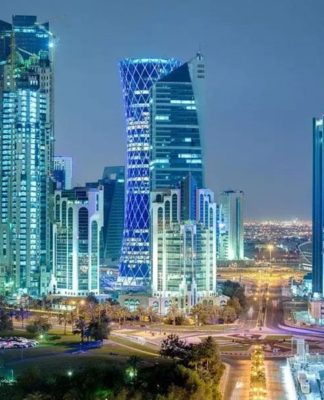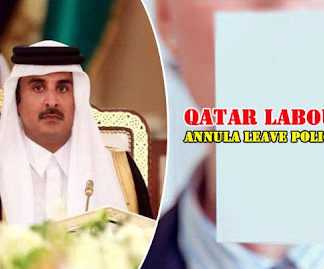Back to homepage / Europe
WAR IN UKRAINE
Another Russian mercenary group shows discontent with the Kremlin: ‘A sign of more to come’
At the end of August, Ukraine declared it had finally managed to pierce Russia’s first line of defence after retaking the small village of Robotyne in Ukraine’s south. This key advance coincided with a Russian mercenary group’s threat to stop fighting on Russia’s behalf on the front lines of the village and could be a sign of more anti-Kremlin sentiment brewing among those fighting for Moscow.
Issued on: 04/09/2023 – 21:35
4 min
Ukrainian soldiers of the “Skala” battalion enter the embattled village of Robotyne in the Zaporizhzhia region on August 25, 2023. The same day, fighters belonging to the Russian mercenary group Rusich had threatened to lay down arms.
Ukrainian soldiers of the “Skala” battalion enter the embattled village of Robotyne in the Zaporizhzhia region on August 25, 2023. The same day, fighters belonging to the Russian mercenary group Rusich had threatened to lay down arms. © Skala battalion via Reuters
By:
Louise NORDSTROM
Follow
“Robotyne has been liberated,” Ukraine’s deputy defence minister Hanna Maliar announced on August 28.
Although the tiny village, which had a pre-war population of fewer than 500 people, may be of little importance in itself, it lies along a strategic road that leads to the Russian-occupied road and railway hub of Tokmak. From there, another road leads to the key city of Melitopol, which, prior to Russia’s illegal annexation of Crimea in 2014, was known to Ukrainians as the “gateway” to the peninsula. Last week’s victory was therefore an important advance for Ukraine.
Just a few days earlier, however, fighters from Rusich, a small Russian neo-Nazi paramilitary group stationed at Robotyne’s front line, had threatened to lay down their arms – a move that may have contributed to Russia’s stinging loss there.
The official reason for the threat to lay down arms, Rusich explained in an August 25 statement on Telegram, was that one of the group’s top commanders and founding members, Yan Petrovsky, had been detained in Finland and faced extradition to Ukraine – and the Russian government was not doing much about it.
Petrovsky, a dual Russian-Norwegian national, co-founded Rusich back in 2014 to take part in the Russian occupation of Donbas and is believed to have been a contractor for the Wagner Group at one point. He faces various terrorism-related charges in Ukraine and risks being sentenced to between 15 and 20 years in prison if he is extradited.
In a series of messages screen-grabbed by the research project Antifascist Europe, Rusich members expressed frustration with their treatment by the Russian authorities.
“If the country cannot protect its citizens, why should the citizens protect the country?” asked one.
According to the Institute for the Study of War (ISW), the group did indeed seem to be operating near Robotyne in western Zaporizhia Oblast, describing it as “a critical area of the front line where the Russian military command likely cannot afford for any units to rebel and refuse to conduct combat missions”.
Soon after ISW issued its analysis, Robotyne fell to Ukraine.
There has been no official confirmation – either from Rusich or the Russian defence ministry – that the group’s fighters did stop fighting.
According to Jeff Hawn, a non-resident fellow at the Washington, DC-based think-tank New Lines Institute and an expert in Russian military matters, it would have been a credible scenario.
“There’s a very strong possibility” that the mercenaries laid down arms, which would likely have contributed to the fall of Robotyne, he said. Russia is so short of fighters it cannot replace units that give up, he said, adding that we likely won’t know “for years” what really happened.
Hawn said the reason for a revolt would likely have less to do with the detention of the group’s leader than with a loss of motivation among Russian mercenary fighters in general, coupled with Moscow’s increasing inability to keep them under control.
“These guys are likely just looking for an excuse to get out,” he said. “They’re realising that Ukraine isn’t just going to break and give up.”
The situation for paramilitary groups has been further complicated by Wagner’s attempted mutiny back in June and the death of the mercenary group’s leader, Yevgeny Prigozhin, late last month.
Under Prigozhin’s leadership, Hawn explained, Wagner had long served as an organising tool for other Russian militia groups operating in Ukraine. Prigozhin had also established a culture of paying his mercenaries well, and in dollars – a culture that spread to the other militias fighting in Ukraine.
“Even though he had a reputation of being a tough guy, a thug, Prigozhin was known to take good care of his people, paying them more, and in hard currency.”
Following the group’s botched mutiny, however – and Moscow’s subsequent attempts to try to dissolve the group – the working conditions for Prigozhin’s “militia collective” in Ukraine worsened.
“They’re probably getting paid in rubles now – if they’re getting paid at all,” Hawn said.
“They’re also probably not getting supplied, because militia groups are at the very lowest end of the totem pole when it comes to Russian logistics, which are completely overstretched already.”
Before his death, Prigozhin had long complained that the Russian military was not supplying his mercenaries with enough ammunition, even threatening to pull his troops from the front line in the hard-fought city of Bakhmut.
Prigozhin’s death – and that of his reported right-hand man Dmitry Utkin in a plane crash on August 23 – also wiped out a whole shadow power structure built upon both connections and the ability to command the “thugs and criminals” fighting as mercenaries.
“There’s no one like Prigozhin who currently has the will, or ability to challenge the government directly,” Hawn said. With the Wagner leader now out of the picture, he said, it will become even harder for Moscow to control the dozen or more militia groups still in Ukraine.
Even worse for Moscow, Hawn said, would be if they were willing to switch sides.
“It wouldn’t surprise me if some of these guys repent and suddenly joined the Free Russian Legion, especially if they’re getting paid in dollars,” he said, referring to a group of pro-Kyiv Russian fighters that claimed to have staged several attacks in Russia’s Belgorod region in recent months.
“I do think the incident in Robotyne is significant, and that it’s a sign of more things to come.”
Share :






























